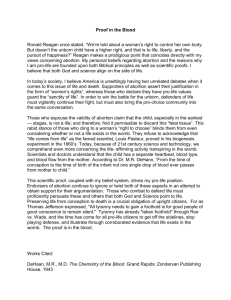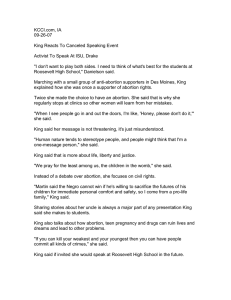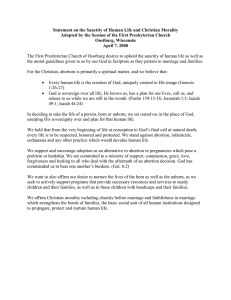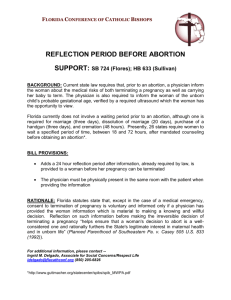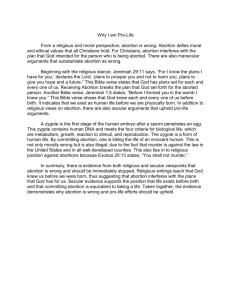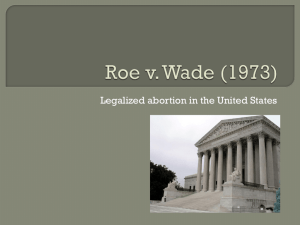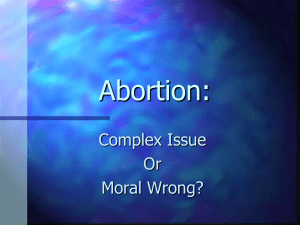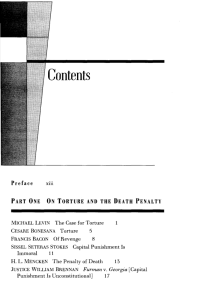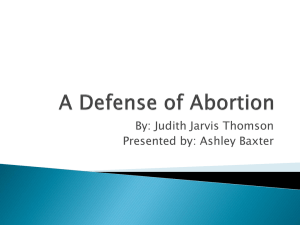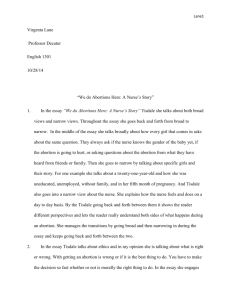grades 6-12 essay contest
advertisement
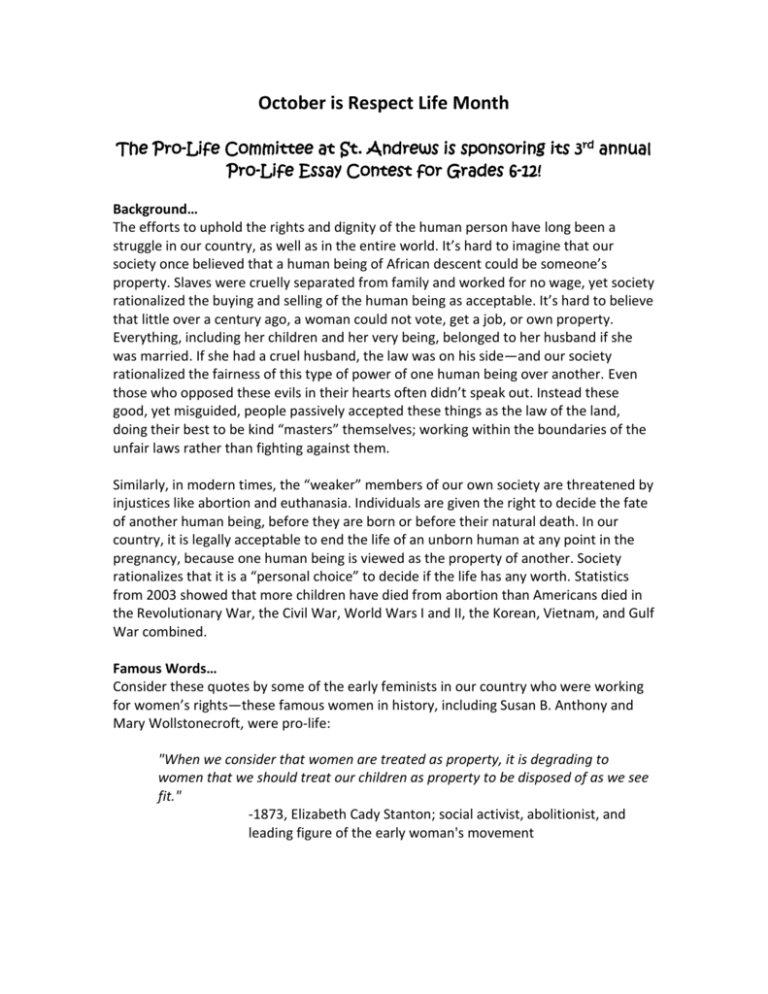
October is Respect Life Month The Pro-Life Committee at St. Andrews is sponsoring its 3rd annual Pro-Life Essay Contest for Grades 6-12! Background… The efforts to uphold the rights and dignity of the human person have long been a struggle in our country, as well as in the entire world. It’s hard to imagine that our society once believed that a human being of African descent could be someone’s property. Slaves were cruelly separated from family and worked for no wage, yet society rationalized the buying and selling of the human being as acceptable. It’s hard to believe that little over a century ago, a woman could not vote, get a job, or own property. Everything, including her children and her very being, belonged to her husband if she was married. If she had a cruel husband, the law was on his side—and our society rationalized the fairness of this type of power of one human being over another. Even those who opposed these evils in their hearts often didn’t speak out. Instead these good, yet misguided, people passively accepted these things as the law of the land, doing their best to be kind “masters” themselves; working within the boundaries of the unfair laws rather than fighting against them. Similarly, in modern times, the “weaker” members of our own society are threatened by injustices like abortion and euthanasia. Individuals are given the right to decide the fate of another human being, before they are born or before their natural death. In our country, it is legally acceptable to end the life of an unborn human at any point in the pregnancy, because one human being is viewed as the property of another. Society rationalizes that it is a “personal choice” to decide if the life has any worth. Statistics from 2003 showed that more children have died from abortion than Americans died in the Revolutionary War, the Civil War, World Wars I and II, the Korean, Vietnam, and Gulf War combined. Famous Words… Consider these quotes by some of the early feminists in our country who were working for women’s rights—these famous women in history, including Susan B. Anthony and Mary Wollstonecroft, were pro-life: "When we consider that women are treated as property, it is degrading to women that we should treat our children as property to be disposed of as we see fit." -1873, Elizabeth Cady Stanton; social activist, abolitionist, and leading figure of the early woman's movement "Every woman knows that if she were free, she would never bear an unwished-for child, nor think of murdering one before its birth." -1875, Victoria Woodhull, first female presidential candidate "When a man steals to satisfy hunger, we may safely conclude that there is something wrong in society - so when a woman destroys the life of her unborn child, it is an evidence that either by education or circumstances she has been greatly wronged." -1869, Mattie Brinkerhoff, suffragist and lecturer The Essay… All of these women lived during a time when they had to fight for women’s rights— some were abolitionists as well, who fought against the injustice of slavery. Still, they did not view abortion as a right they were entitled to, in contrast to some women in our society today. They saw clearly where their individual rights ended and another human being’s began. Consider the following: How do you think abortion came to be the central focus of today’s women’s rights/the most important concern? Why do think some people believe that abortion is a “right”? Does this belief make people overlook what they might otherwise consider to be wrong? Do you believe our society has learned any lessons from past injustices against the human being? (i.e. slavery) Do you believe there is a distinction between unalienable rights and legal rights? If so, who is ultimately in charge of the gift of unalienable rights? The evils of slavery were overlooked for so long because it gave plantation owners an easier lifestyle—slave owners reaped the reward of all the hard labor without having to pay employees. How do you believe abortion creates convenience for one man or woman at the expense of another? Because the unborn human being is being treated as the “property” of another, does this remind you of any past offenses against the dignity of the human? Do you believe any man or woman has the right to control the fate of another human being? Write an essay, no more than 500 words, with your thoughts. Be sure to include your name and grade level on the back of your essay. The deadline for entries is Friday, October 29. Winners from each grade level will be selected and awarded for their effort.
